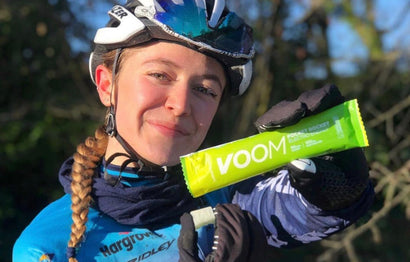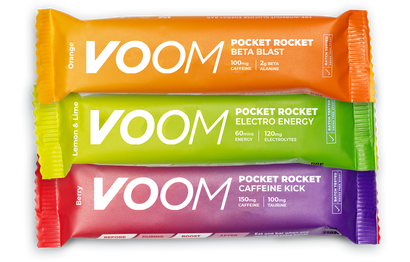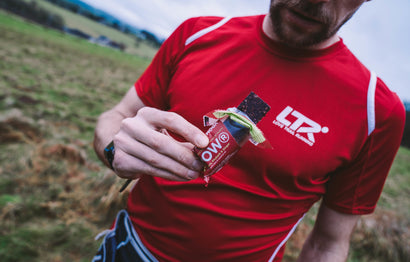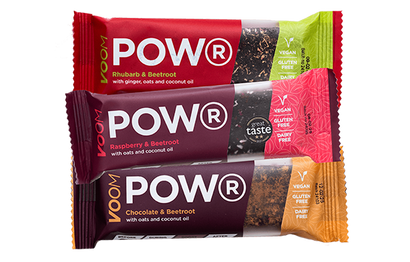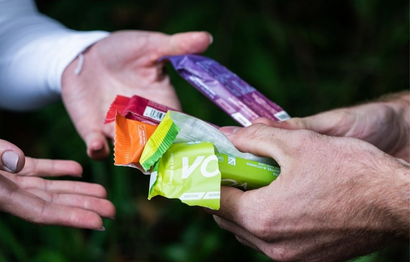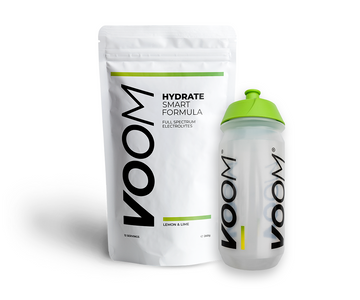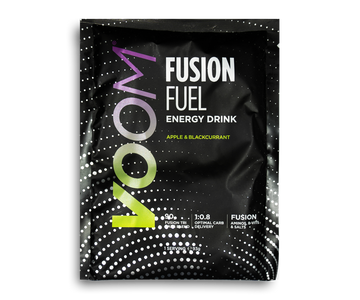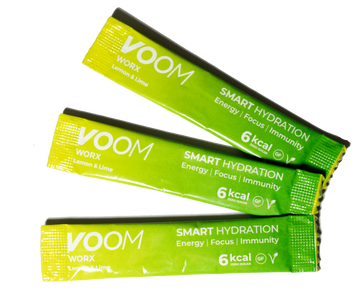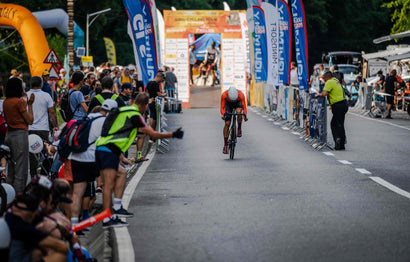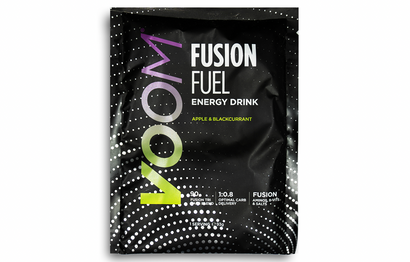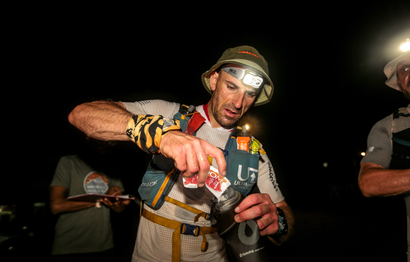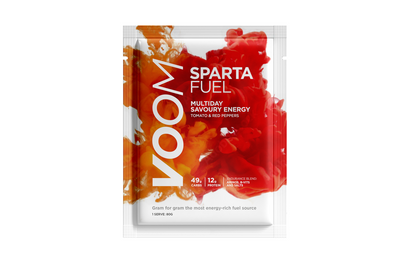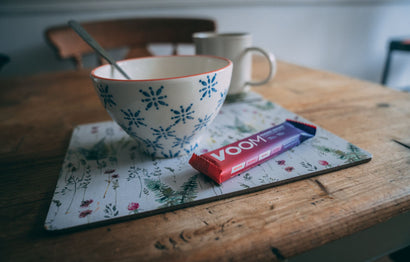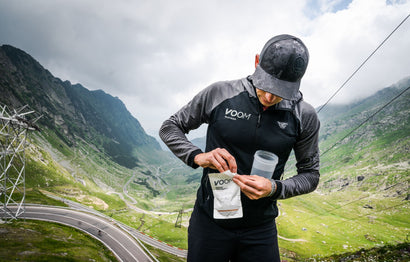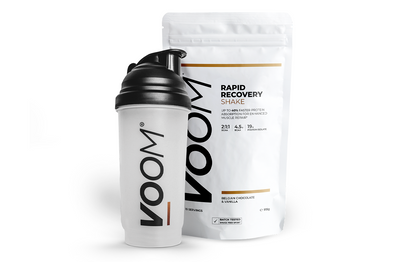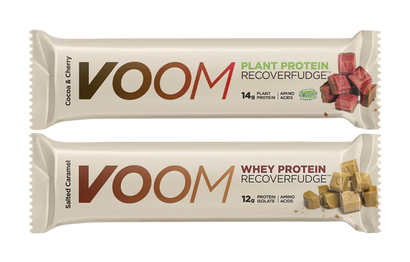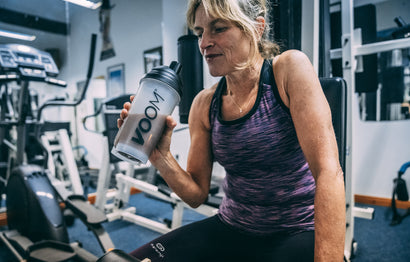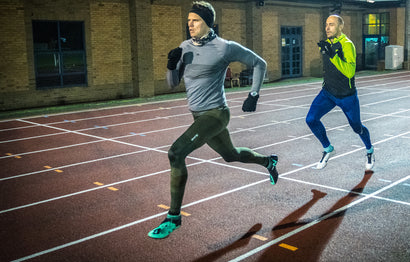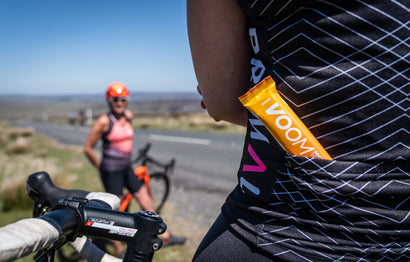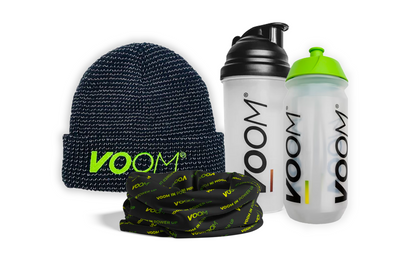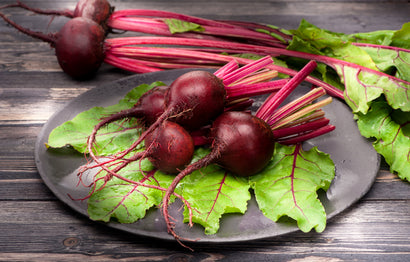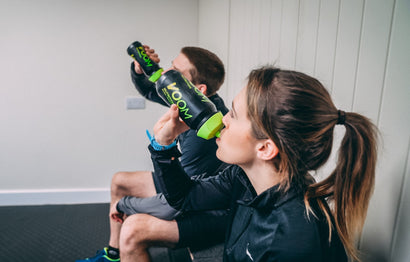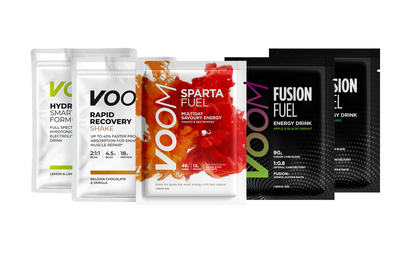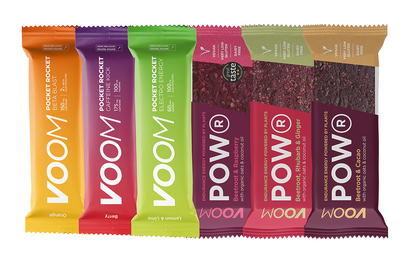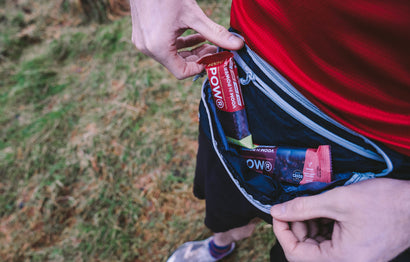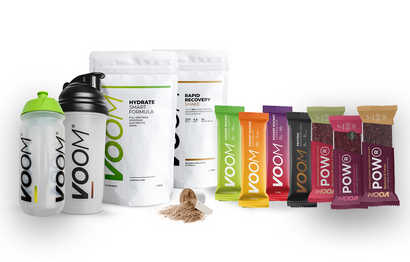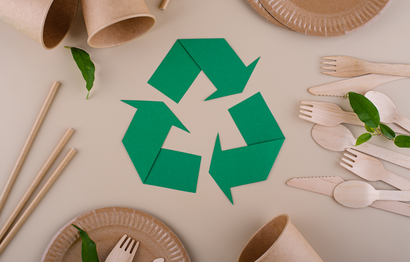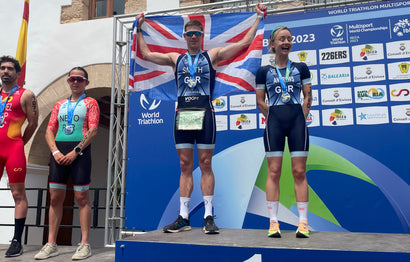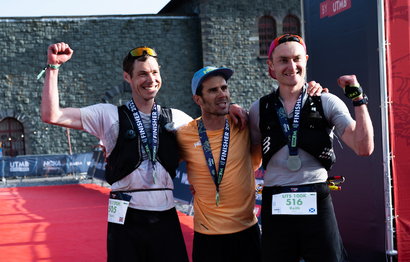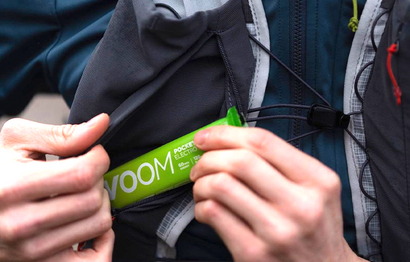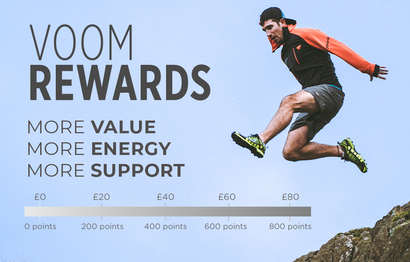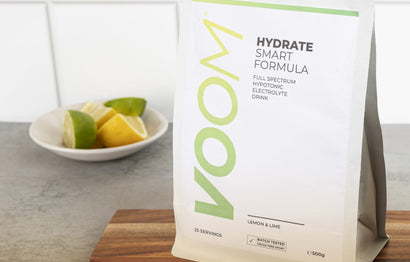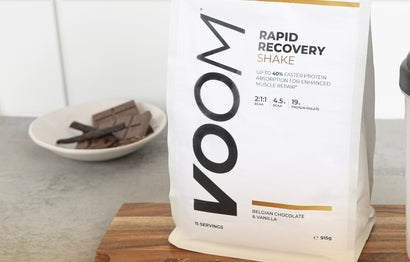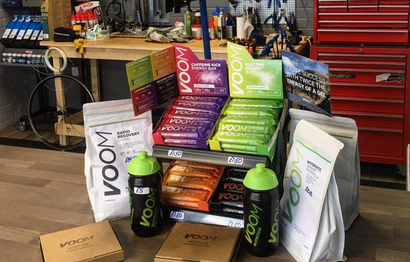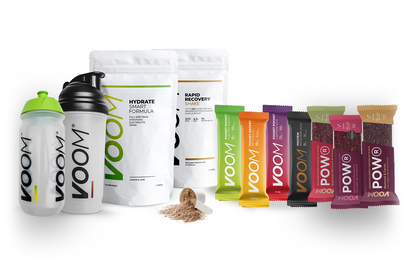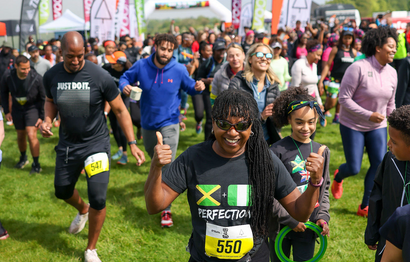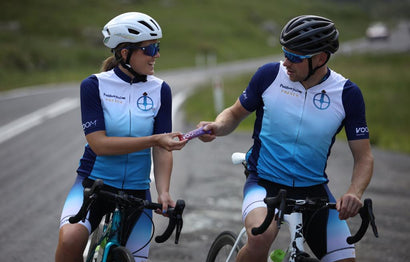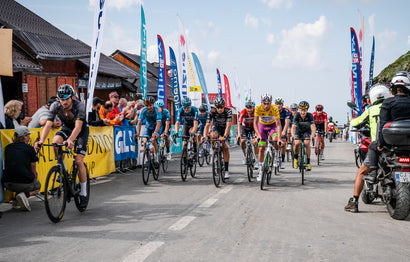We know it’s important to get the best diet for marathon training, so we're going to show you what to eat for marathon running with some of the best food combinations for the necessary energy, recovery and repair. No single plan fits all, but the VOOM Marathon Diet Guide gives tips on how to fuel your marathon or distance running training. When it comes to marathon training how much to eat is important but it’s salient to remember calorie requirements can vary substantially between individuals.
We hope this training guide helps you enjoy your journey, and feel great during your marathon preparations, thanks to the meals you eat. Part 1 of our series on marathon fueling focusing on developing a good diet for marathon training.

Quick tips on Fueling Marathon Training
For our in depth recommendations and reasoning, including some of our best marathon training meals and an example weekly marathon nutrition plan, read on below. Just as you wouldn’t run a marathon without training, you shouldn’t train for it without first considering your nutrition and diet. So, if you’re a time-crunched runner we have summarised some of our best marathon nutrition advice into these quick tips.
1) Have a good breakfast!
For many it can be beneficial to move some calories earlier in the day, i.e. a bigger breakfast and slightly reduced evening meal. A pre-run breakfast should provide carbohydrates, some protein and don't forget hydration as you likely won't have taken on many fluids through the night. Your marathon training schedule may determine when you're running but if time allows you ideally want 2.5 - 3 hours between breakfast and running. If you think you'll feel hungry you can top your glycogen with a serving of around 20g carbs which might be a banana, a VOOM Pow® Plant bar or half a Pocket Rocket Energy bar an hour before go-time.
2) Consider what to have before bed
A warm glass of milk certainly carries some support - the right nutrients before bed aim to improve sleep, boost recovery and fuel tomorrow’s workouts. Research supports the intake of protein before bed for improved quality of sleep and muscular repair after training. What you do today really does effect what happens tomorrow.
3) Find a suitable balance of macronutrients for running
How many carbs should marathon runners have can obviously vary but as a general rule a balance of energy intake made up of 55-65% carbs, 15-25% protein and 20-30% fats seems to fuel marathon training nicely.
4) Fuel the Long Run
The long run is an integral part of any marathon training plan and the importance of fueling during your run is particularly important as the distance and duration increases. Research suggests carbohydrate intake during exercise lasting longer than around 90minutes is beneficial, and how much carbohydrate to consume depends on the duration of the run.
For runs lasting 2-3 hours an intake of 30-60g of carbs per hour is recommended, which would consist of 3-6 pieces of VOOM Pocket Rocket. An intake of 60-90g is recommended for intense training or races lasting over 3hours, but some nutritional training is probably required to comfortably manage 90g per hour. VOOM Fusion Fuel provides an easy and effective way to consume up to 90g of carbs in an hour.
Diet for Marathon Training - General Rules Part 1
Why Runners should have a big breakfast
Breakfast like a king, the saying goes, and this can be particularly beneficial for athletes. A large breakfast can ensure you’re adequately fueled for training later in the day meaning you can enjoy the session rather than dread the ordeal. Research has also shown that individuals who eat more of their calories in the evening tend to consume more calories in total (than those eating more in the earlier half of the day) which may lead to unwanted weight gain.

There may be health benefits for those who eat more calories in the morning compared with those who eat the same total calories but more in the evening. Individuals who are tired or stressed can end up overeating in the evening and while not every marathon runner aims to lose weight, most want to be at a healthy weight so overeating later in the day is not advisable. When more calories are consumed earlier in the day, hunger cravings and that ravenous post-workout feeling are likely to be reduced and you’ll therefore be in a good position to make healthier food choices, rather than gorging on the closest thing to hand.
Many people tend to have their largest meal of the day in the evening, but for marathon training moving around 500kcal from your evening meal to a bigger breakfast can reduce the amount of time the body spends in energy deficit (more calories burned per hour than consumed). Energy deficit is linked to reduced testosterone (males) and increased cortisol which inhibits the recovery process. Therefore avoiding or reducing time spent in calorie deficit can improve the efficiency of your marathon training plan.
What should runners have before bed?
Whilst wanting to avoid too many calories later into the evening, many people feel they need something before sleeping, so what is best to have before bed in a marathon training diet? It may sound like something your Granny would say, but milk is a good source of whey protein which is thought to aid muscle recovery, so this could be a place to start!
Some researchers suggest that drinking a warm glass of milk, which contains tryptophan and melatonin, may help you get to sleep quicker and have a more restful night’s sleep which becomes even more important when marathon training gets hard. Tryptophan plays an important role in production of serotonin which boosts mood and is a precursor to melatonin. Melatonin is naturally produced in the brain and is also known as the sleep hormone. In reality the levels of tryptophan in one glass of milk may not be enough to induce sleep, but any regular bed time routine is likely to reduce any anxieties and help you unwind so may improve sleep quality. In addition, warm drinks can have a calming effect on the nervous system, so a warm glass of milk may well help you sleep - just ask Granny!
Balance of Macronutrients for training
The ideal balance of macronutrients, as defined by the American College of Sports Medicine, suggests a diet for an active adult should be around 45-65% carbs, 10-15% protein and 20-35% fat. This typical runner’s diet might differ somewhat from the average person, but with good reason. The main difference you’d expect when endurance training would be carbohydrate intake to be at the top of this range. Conversely, someone focusing on strength training might boost protein intake with fewer carbs.
As marathon weekly mileage increases the calories required grows but not all runners increase their energy intake creating a runner’s recipe for disaster! Regular running requires greater energy intake than a more sedentary lifestyle, and additional carbohydrates are the main recommended source, as the primary energy for runners during exercise. Carbs are one of those marathon essentials!

While you might be wanting to link weight loss and marathon training you should not drastically reduce fat intake as fat metabolism is a good source of energy when working at lower running intensities and basal metabolic rate and essential within the body. So, will marathon training lose weight? The chances are most people who undertake a beginner or intermediate training program for marathon running will alter their body composition somewhat by reducing their body fat percentage due to the additional activity being undertaken.
You can read part 2 of the marathon diet guide here and part 3 is available here...

